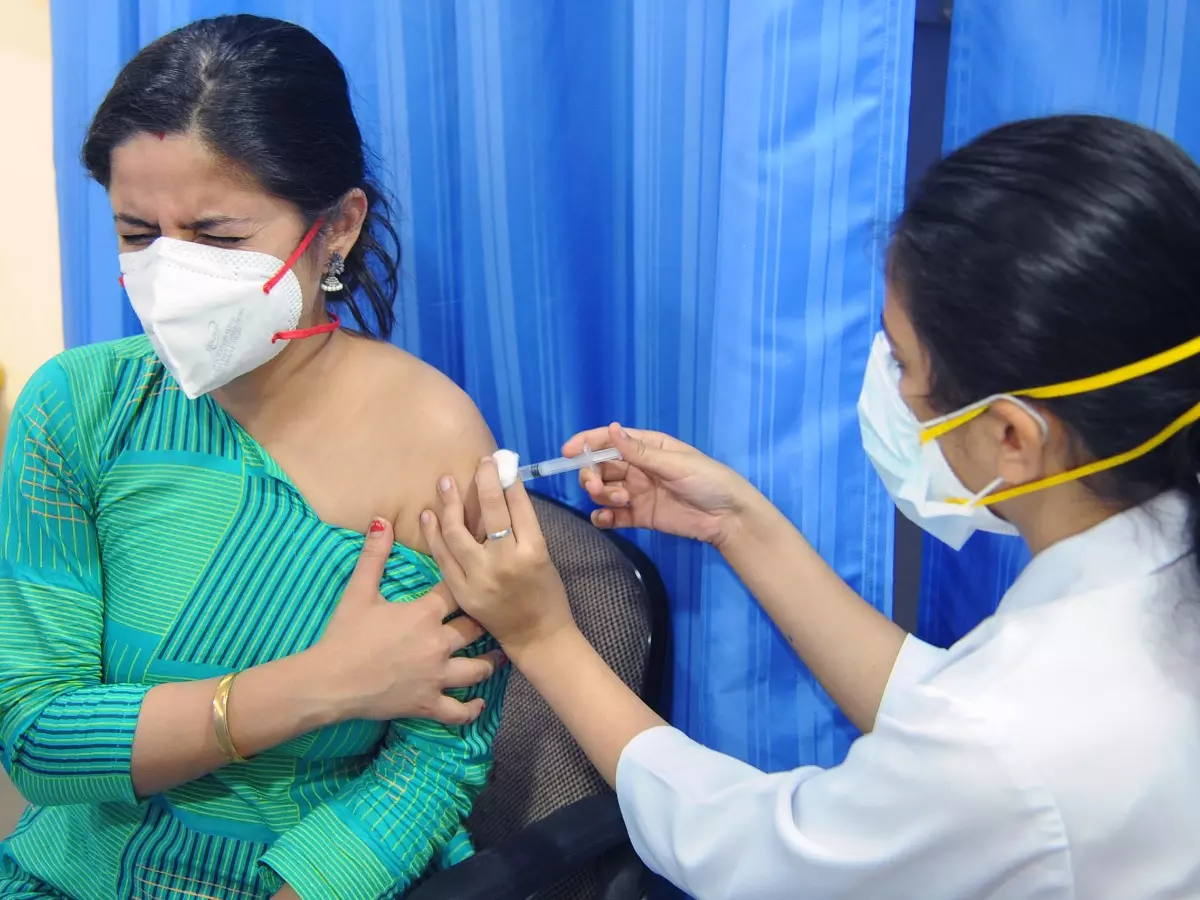Message Warning Women To Not Take COVID Vaccine During Periods Is Fake: What Experts Say
A message has started making rounds online warning women not to take the jab five days before and after their periods. But according to scientists, there is no data to suggest that woman¡¯s immunity is reduced during their periods.

Following the government's announcement that everyone in the country above the age of 18 can get vaccinated against COVID-19 from May 1, a message has started making rounds online warning women not to take the jab five days before and after their periods.
The reason mentioned in the viral post is that women¡¯s immunity is low during those days and taking the vaccine during periods can be dangerous.
 Twitter
Twitter
But according to scientists, there is no data to suggest that woman¡¯s immunity is reduced during their periods.
#Fake post circulating on social media claims that women should not take #COVID19Vaccine 5 days before and after their menstrual cycle.
¡ª PIB Fact Check (@PIBFactCheck) April 24, 2021
Don't fall for rumours!
All people above 18 should get vaccinated after May 1. Registration starts on April 28 on https://t.co/61Oox5pH7x pic.twitter.com/JMxoxnEFsy
Fertility expert and gynaecologist Dr. Yuvraj took to social media to debunk this claim and called it a way to 'stigmatize periods'. Dr. Yuvraj further said that there is "no science as of now that says that women or girls shouldn't take the vaccines on these days."
What professionals say
Dr. Shimna Azeez, a Kerala-based medical practitioner also pointed out that, in the first phase medical professionals and frontline workers of all ages, including women of menstruating age had received the vaccine and there have been no reports of any complications from taking the jab during those days.
 BCCL
BCCL
Experts also rejected another claim that the Covid-19 vaccines may affect menstrual cycles and fertility, after anecdotal reports that some people experienced earlier, later, heavier or more painful periods following the jab.
 BCCL
BCCL
¡°So far, there¡¯s no data linking the vaccines to changes in menstruation,¡± Alice Lu-Culligan and Dr Randi Hutter Epstein at Yale School of Medicine wrote in the New York Times. ¡°Even if there is a connection, one unusual period is no cause for alarm.¡±
